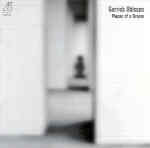The title and repertoire suggest a kind of modified Piano’s Greatest Hits with Garrick Ohlsson at the keyboard. It’s only when you break the shrink-wrap and read the notes that you learn the premise behind this release. Producer Adam Abeshouse’s grandfather, who owned a piano business in Sydney, Australia, acquired an 1876 Steinway concert grand and left it to his son Arnold Abeshouse, the producer’s uncle, who in turn generously gave the instrument to his nephew. Peter Mohr and Edward Court painstakingly restored it. The timbre bears traces of the aromatic ping and registral differentiation characteristic of many fortepianos, but with the resonance and projection familiar from today’s modern grands. Its softest tones are full of body and are almost flutelike.
Ohlsson takes full advantage of this instrument’s tonal potential, pulling out all the bel canto stops in the Mozart C major and Haydn B minor sonatas (the latter’s Presto positively sizzles!). He can’t resist modifying the lines with coy diminuendos and teasing rubatos, yet he does so without pulling focus from the bigger picture. By comparison, some of his voicings and rubatos in the Chopin waltz and Bach fugue sound arch and affected, less so with the Chopin mazurka’s ersatz-Ignaz Friedman left-hand grenades and hiccups before the third beat. For sustaining power and rhetorical breadth, the piano and pianist merge as one in Liszt’s Funérailles. Ohlsson’s full-throated sweep in the Brahms and Rachmaninov selections also impress, and he paints the two Scriabin Etudes in darker hues than the bright colors we associate with their landlord, Vladimir Horowitz. In all, a delightful disc and a must for antique piano buffs.
































